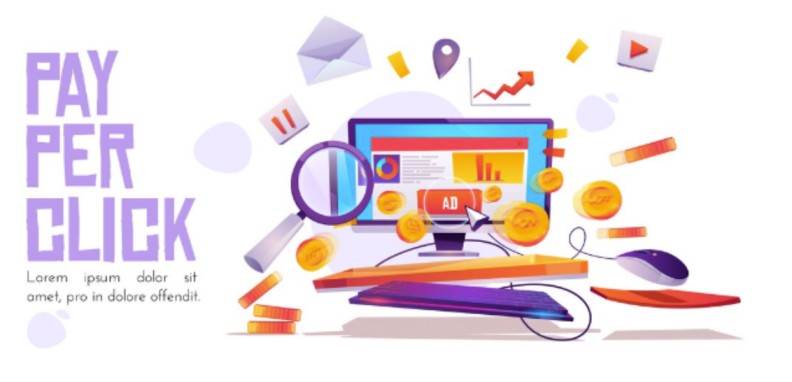
To put it simply, Google AdWords services have changed dramatically over the years and the process has been nothing but a big revolution. As doing research and experiencing it with different google ads management services have been my practice over the years, the ad space has turned out to be more clever, more automated and focused on results to an extreme. No more businesses wholly depending on the traditional manual campaigns. Rather, automation, AI-driven insights, and machine learning help them to get better ROI with less hassle.
Moreover, from my side, the movement from classic AdWords to the present-day Smart Campaigns has been one of the major breakthroughs in online advertising. Smart Campaigns made it possible for businesses to deal with Google’s ad platform in a totally new way and provided even small companies with access to the very same powerful tools that were once only for expert marketers.
From the viewpoint of a google ads management company, such an evolution meant both risks and rewards. Firms that offer google ads management services or adwords management services have had to rethink their tactics, being trained to blend AI automation with human proficiency. Thus, the result is a more data-driven and customer-oriented advertising model now. So, whether the advertising is done by a google ads management agency or a freelancer, everyone is experiencing the power of google adwords management services like never before.
The Origins of Google AdWords Services
When Google AdWords came into existence in 2000, it was primarily intended to be a self-service advertising method for small businesses. The marketers had the option to manually bid on keywords and write text ads that would show up on the results pages of search engines. My investigation revealed that through its straightforwardness and effectiveness, the advertising model gained popularity very quickly with all types of businesses.
On the other hand, the complexity of the situation was increased alongside the competition. The tasks of managing bids, analyzing keywords, and optimizing ad performance became very time-consuming. Hence, the appearance of google ads management agencies took place, which provided specialized adwords management services to assist brands in realizing their full advertising potential.
Slowly but surely, Google rolled out new features such as ad extensions, audience targeting, and remarketing, enabling advertisers to connect with potential customers through various channels. However, it was the growing dependence on automation and AI that really revamped the AdWords system.
The Transition from AdWords to Google Ads
In the year 2018, Google unreservedly changed the name of AdWords to Google Ads, hence, a new era in digital marketing started. Market research has proven that this change was not only surface-deep; it indicated a more profound integration of machine learning and automation into the whole process of campaign management.
The revamped Google Ads platform introduced Smart Campaigns as a more straightforward option compared to the old-fashioned campaigns. These were specially designed for small and medium enterprises that did not have the know-how or the time to handle intricate advertising strategies.
From my perspective, this maneuver made online advertising available to more players, and consequently, more businesses were able to fight for the top positions in search results. Advertisers who lacked a sophisticated knowledge of bidding strategies or keyword optimization could still count on Google’s AI to present their ads to the right audience at the right time.
The Rise of Smart Campaigns
Smart Campaigns are the primary service of the modern-day Google AdWords. They are powered by artificial intelligence which takes care of everything from creating ads, to targeting, to optimizing them. At least this is what I know, the whole process of automation allows the advertisers to get better results with almost no manual work.
Real-time analysis of user behavior, search intent, and conversion data is done by Smart Campaigns unlike traditional campaigns that need daily adjustments. Ads are being optimized non-stop to the right customers who are the most likely ones to convert.
Market insights have shown that companies implementing Smart Campaigns have experienced clicks at their ads (CTR) and cost per conversion has decreased too. Machine learning algorithms that power these campaigns are processing large-scale data and making the right decisions relying on this technology.
In my inquiry, Smart Campaigns, though, are not only about the use of technology—they also indicate simple operation. It is quite easy for advertisers. Just set the goals, determine budgets, and specify business categories. Then, the system takes over completely, starting from the choice of keywords to where the ad will be shown.
Benefits for Businesses and Agencies
Google AdWords services have gone through a phase of transformation that has dramatically impacted the function of agencies and of course, the businesses as well. The advertisers now have Smart Campaigns on their part, which mean less time for ad management and more time for strategy and creativity.
For a google ads management company, this is the time to grab the opportunity and to offer more value-driven services, such as data analysis, conversion optimization, and creative ad design. Agencies are not only going to help clients with the proper branding messages and online visibility but also adjust bids automatically instead of doing it manually for hours.
According to market research, the early automation acceptance by agencies has brought about higher efficiency and client satisfaction. The application of AI tools results in quicker campaign optimization and performance monitoring.
How Smart Campaigns Enhance ROI
Among the main advantages that Smart Campaigns bring one is their potential to significantly increase the return on investment (ROI) a business can get. Google’s algorithm, based on the data of millions of searches and clicks, detects the best-performing ads and distributes the budget among them.
According to my findings, this practice leads to a more precise targeting and higher-quality leads. In other words, Small businesses can now spend less and achieve more—this was not an easy task with traditional manual campaigns.
For example, local businesses that once had a hard time managing keywords are now enjoying the benefits of Smart Campaigns’ location-based targeting. The system of Google automatically increases and decreases the bids based on local intent and distance, thus, ads are displayed to the customers who are close by.
Challenges and Adaptation
In spite of their benefits, Smart Campaigns still pose certain issues. According to my sources, automation may at times be a drawback with regard to control, in particular for those who like to get personally involved in the process of advertising.
For the most skillful marketers, the absence of manual keyword and bid management may be viewed as a limitation. But I have investigated and found that the secret is in the balance—using automation combined with shrewd human input so that the best outcomes are obtained.
Firms that provide google ads management have to get to the bottom of the AI conduct and receiving the performance data in a correct way in order to adjust their campaigns properly.
The Future of Google AdWords Services
Progressing into the future, the transformation of Google AdWords services is going to be driven by data, automation, and personalization. Besides, more advanced machine-learning algorithms will make the ads even more relevant and predictive to users than they are now.
According to market research, Google is making huge investments into AI-based tools that will work together with other digital platforms like YouTube, Maps, and Shopping. Therefore, advertisers will be able to launch campaigns that are present on multiple channels and change according to the users’ activities in no time.
The popularity of voice search, visual discovery, and augmented reality will be some of the factors that will also increase the use of Smart Campaigns. Based on what I know, the advertisers who are able to catch the trends early will be the ones that have the most significant competitive advantage.
Conclusion
The shift from conventional AdWords to Smart Campaigns is a landmark event that defined digital marketing history. In my opinion, the change was a way for the businesses to get powerful tools combining automation, analytics, and creativity.
The human factor is still very important, but AI has made the big processes easier, thus making advertising more accessible and effective than ever before. As I understand it, the key to survival in the new era is to be flexible—accepting the change while at the same time making the most of data-driven insights.
For the current advertisers, working together with a seasoned meta ads agency, a meta advertising agency, or a meta ad agency can yield a more powerful outcome. Such agencies have the know-how in the changing digital environment and provide one-stop meta ads company and meta ads services that go hand in hand with Google’s smart advertising solutions.
In the end, those who keep up with the changes and constantly learn will be the winners in the never-ending battle for digital advertising.

Abdul Qadeer is highly experienced in creating engaging content that adds real value to a blog, website, or brand. He is creating content for multiple niches like technology, SEO, Marketing, Health, Education and Career Development, etc.